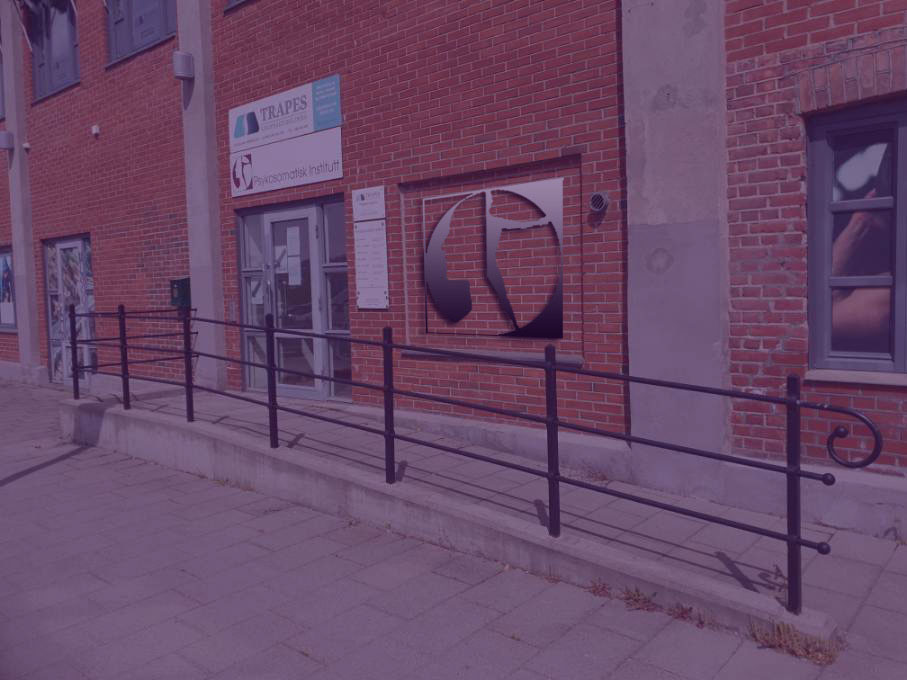LEIETAKERE, FRITTSTÅENDE/ EKSTERNE SAMARBEIDSPARTNERE
We also have external collaboration with other therapists, who have both with and without a reimbursement agreement. We also have Trape’s chiropractor clinic here.
Psykosomatisk Institutt er et privat institutt som ble grunnlagt av psykologspesialist Erik Wærnes og psykiater Øyvind Nordstrand.
Vår kollega Øyvind Nordstrand gikk bort juli 2008, etter kort tids sykdom. Vi hedrer hans minne ved å forsette å sette pasienten i fokus og videreføre hans inderlige ønske om å hjelpe pasienter med psykosomatiske lidelser.
Psykosomatisk Institutt er en helsetjeneste på spesialistnivå som tilbyr utredning og behandling av psykosomatiske tilstander og smertetilstander. Instituttet har spesialistkompetanse innen nevropsykologi og vanlige psykiske helseplager.
Vi har også eksternt samarbeid med andre behandlere, som både har med og uten refusjonsavtale. Også har vi Trapes kiropraktor klinikk her.
